
As 2019 Fades To Black, We Say Goodbye

Sylvia Chase, an Emmy Award-winning correspondent whose professionalism and perseverance in the 1970s helped a generation of women infiltrate the boys club of television news, died Jan. 3. Chase was an original member of the reporting team for the weekly ABC News magazine 20/20; a correspondent for another ABC News series, Primetime; and the producer and host of a daytime program for CBS, Magazine. She also anchored the nightly news on KRON-TV in San Francisco. She was 80.
John Falsey, a television writer best known for his work with co-writer Joshua Brand on the acclaimed television series St. Elsewhere, Northern Exposure and I’ll Fly Away, died Jan. 3. He was 67.
 Carol Channing, the indomitable personality who electrified Broadway audiences with her energetic performances in the original musical comedies Gentlemen Prefer Blondes and Hello, Dolly!, died on Jan. 15. She was 97. Her effervescent talents lent well to guest appearances on TV variety shows and specials, beginning with an appearance on The Milton Berle Show in 1948. Her TV appearances also included a recurring role on The Love Boat and she guest-starred as herself on Magnum, P.I., The Nanny, The Muppet Show, Touched by an Angel, The Drew Carey Show and Family Guy.
Carol Channing, the indomitable personality who electrified Broadway audiences with her energetic performances in the original musical comedies Gentlemen Prefer Blondes and Hello, Dolly!, died on Jan. 15. She was 97. Her effervescent talents lent well to guest appearances on TV variety shows and specials, beginning with an appearance on The Milton Berle Show in 1948. Her TV appearances also included a recurring role on The Love Boat and she guest-starred as herself on Magnum, P.I., The Nanny, The Muppet Show, Touched by an Angel, The Drew Carey Show and Family Guy.
Russell Baker, the genial, but sharp-witted writer who won Pulitzer Prizes for his humorous columns in The New York Times and a moving autobiography of his impoverished Baltimore childhood and later hosted public television’s Masterpiece Theatre, died on Jan. 28. He was 93.
 John Dingell, a former Congressman (D-Mich.), and the longest-serving member of Congress who played a key role in many pieces of landmark legislation, died Feb. 7. He was one of broadcasters’ most stalwart defenders in Congress. He pushed to ensure broadcasters were treated fairly in the first DTV transition in 2009 and what would be the second one — the TV station repack — following the incentive auction. He was 92.
John Dingell, a former Congressman (D-Mich.), and the longest-serving member of Congress who played a key role in many pieces of landmark legislation, died Feb. 7. He was one of broadcasters’ most stalwart defenders in Congress. He pushed to ensure broadcasters were treated fairly in the first DTV transition in 2009 and what would be the second one — the TV station repack — following the incentive auction. He was 92.
Arnold Freedman, a veteran radio and television broadcaster (also known as Marc Edwards), died on Feb. 8. In 1953, he became one of the first employees of a newly-created company, Capital Cities Broadcasting, that included a small Albany television station, WTEN. As a news reporter, he covered worldwide news events, including national radio coverage of President Dwight Eisenhower’s inauguration in 1953, and television coverage of the Adolph Eichmann Trial in Israel in 1961, for which he and his reporting team won a Peabody Award. He would spend the next 46 years at Capital Cities as CapCities grew to become one of the largest and most successful media conglomerates in the industry, acquiring the ABC Television Network in 1987 before being acquired itself by the Walt Disney Company in 1996.
Ron Miller, who rose through the ranks of his father-in-law’s entertainment company, Walt Disney Productions, but whose time as chief executive was tumultuous and ended with his ouster, died Feb. 9. Over four years — as president and, for 18 months, chief executive — he oversaw the creation of Disney Channel, the company’s cable network. He was 85.
Patti McGettigan, news director of Cox’s Memphis Fox affiliate WHBQ, died Feb. 16 after a long battle with cancer. McGettigan had beaten the disease twice. She was 53.
Gerald “Jerry” Blum, the inspiration for the character of radio station general manager Art “Big Guy” Carlson on the long-running TV sitcom WKRP in Cincinnati, died Feb 16. He was 86.
 Perry Wolff, a groundbreaking television producer whose documentaries took viewers on a tour of the White House with Jacqueline Kennedy and awakened them to widespread hunger in America, died on Feb. 17. He was credited as a writer, director or producer of some 600 hours of broadcasts over more than five decades, mostly for CBS News at a time when news documentaries were regular features of the major networks’ prime-time programming. His broadcasts won 17 Emmy Awards, two Alfred I. duPont-Columbia University Awards in broadcast journalism and an Academy Award nomination for best documentary short film, for writing and directing An Essay on Matisse in 1996 for PBS. He was 97.
Perry Wolff, a groundbreaking television producer whose documentaries took viewers on a tour of the White House with Jacqueline Kennedy and awakened them to widespread hunger in America, died on Feb. 17. He was credited as a writer, director or producer of some 600 hours of broadcasts over more than five decades, mostly for CBS News at a time when news documentaries were regular features of the major networks’ prime-time programming. His broadcasts won 17 Emmy Awards, two Alfred I. duPont-Columbia University Awards in broadcast journalism and an Academy Award nomination for best documentary short film, for writing and directing An Essay on Matisse in 1996 for PBS. He was 97.
David Horowitz, legendary consumer journalist, died Feb. 18. He was best known for his Emmy-winning TV program Fight Back! With David Horowitz that investigated defective products, advertised claims and confronted companies with customer complaints. The show debuted on KNBC under the name California Byline, and Horowitz was a celebrated member of the NBC team for two decades. He was 81.
 Katherine Helmond, the seven-time Emmy-nominated Texas actress who played the feisty, man-crazy mother Mona Robinson on the long-running ABC sitcom Who’s the Boss?, died Feb. 23. She received Emmy nominations for lead actress in a comedy for playing Jessica in every season of Soap, which aired from 1977-81. She was nominated again for Who’s the Boss? in 1988 and 1989 and for Everybody Loves Raymond in 2002. And she won two Golden Globes, one for each show. She was 89.
Katherine Helmond, the seven-time Emmy-nominated Texas actress who played the feisty, man-crazy mother Mona Robinson on the long-running ABC sitcom Who’s the Boss?, died Feb. 23. She received Emmy nominations for lead actress in a comedy for playing Jessica in every season of Soap, which aired from 1977-81. She was nominated again for Who’s the Boss? in 1988 and 1989 and for Everybody Loves Raymond in 2002. And she won two Golden Globes, one for each show. She was 89.
Jeraldine Saunders, creator of hit ABC series The Love Boat, died Feb. 26 at age 96. She was best known for writing the 1974 book The Love Boats, which the ABC comedy drama was based on. The book documented her experience on the high seas as the first female cruise director for a major cruise line, Princess Cruises. The series, which was produced by Aaron Spelling, ran for nearly 250 episodes between 1977 and 1986.
Luke Perry, who gained instant heartthrob status as wealthy rebel Dylan McKay on Fox’s Beverly Hills, 90210, died March 4. Perry also played construction company owner Fred Andrews, father of main character Archie Andrews, for three seasons on The CW’s Riverdale. He was 52.
Sidney Sheinberg, who with Lew Wasserman built MCA Inc. and Universal Studios into Hollywood powers, died March 7 at age 84. He was a lawyer who served as president of COO of MCA Inc. and Universal Studios for 40 years. He gave Steven Spielberg his first job as a TV director, and transformed Universal into a major player.
Blake Byrne, a co-founder and former president of station owner Argyle Television and one of the world’s leading art collectors, died March 24. He was 83. Byrne came to Los Angeles in 1989 to become president and general manager of KCAL-TV. Three years later, he co-founded Argyle Television in Los Angeles and San Antonio, Texas. (Argyle went on to merge its stations with those of the Hearst Corp. in 1997.)
Bruce Reese, the former president of Bonneville International, died April 4. He was 70. Reese joined Bonneville as general counsel in 1984 and served as president from 1996 to 2010. Under his leadership, Bonneville stations won more than 40 Crystal and Marconi awards from the NAB through a philosophy of strong local talent and service to community.
 Ernest “Fritz” Hollings, the former Senator (D-S.C.), who served six terms and had several high-profile battles over restricting television, film and music content, died April 6. A former presidential candidate, the Democrat Senator had a long history with Hollywood and the entertainment industry in general, most of them boiling down to calls for restrictions on First Amendment issues. He was 97.
Ernest “Fritz” Hollings, the former Senator (D-S.C.), who served six terms and had several high-profile battles over restricting television, film and music content, died April 6. A former presidential candidate, the Democrat Senator had a long history with Hollywood and the entertainment industry in general, most of them boiling down to calls for restrictions on First Amendment issues. He was 97.
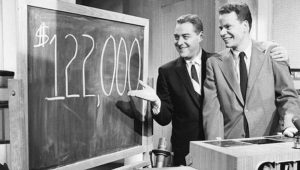 Charles Van Doren, the dashing young academic whose meteoric rise and fall as a corrupt game show contestant in the 1950s inspired the movie Quiz Show and served as a cautionary tale about the staged competitions of early television, died April 9. He was 93. Before his downfall, he was a ratings sensation. He made 14 electrifying appearances on Twenty-One in late 1956 and early ’57, vanquishing 13 competitors and winning a then-record $129,000. NBC hired him as a commentator.
Charles Van Doren, the dashing young academic whose meteoric rise and fall as a corrupt game show contestant in the 1950s inspired the movie Quiz Show and served as a cautionary tale about the staged competitions of early television, died April 9. He was 93. Before his downfall, he was a ratings sensation. He made 14 electrifying appearances on Twenty-One in late 1956 and early ’57, vanquishing 13 competitors and winning a then-record $129,000. NBC hired him as a commentator.
Georgia Engel, who played the charmingly innocent, small-voiced Georgette on The Mary Tyler Moore Show and amassed a string of other TV and stage credits, died April 12. She was 70.
Gordon McLeod, a respected media executive who held senior positions at CBS News, Newsday, The Wall Street Journal and Time Inc., among others, died of complications from a nine-year battle with cancer on April 26. He was 60. McLeod was a communications executive who helped change the landscape of journalism over his 35-year career.
Jim Fowler, Wild Kingdom host, died May 8. He was 89. Fowler co-hosted Mutual of Omaha’s Wild Kingdom with Marlin Perkins beginning in 1963. He was also known for being a regular guest on The Tonight Show With Johnny Carson, and Fowler was close friends with the talk show host.
Peggy Lipton, a star of the groundbreaking late 1960s TV show The Mod Squad and the 1990s show Twin Peaks, died May 11. She was 72. The Los Angeles Times said Mod Squad was one of pop culture’s first efforts to reckon seriously with the counterculture and one of the first TV shows to feature an interracial cast. Lipton was nominated for Emmys and won a Golden Globe in 1971 for her performance.
Doris Day, the sunny blond actress and singer whose frothy comedic roles opposite the likes of Rock Hudson and Cary Grant made her one of Hollywood’s biggest stars in the 1950s and ’60s and a symbol of wholesome American womanhood, died May 13. She was 97. After her movie career ended, she turned to television to recoup her finances. The Doris Day Show was a moderate success in its 1966-1973 run on CBS.
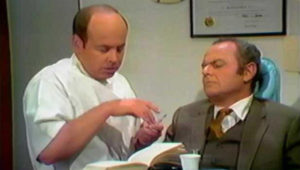 Tim Conway, the impish second banana to Carol Burnett who won four Emmy Awards on her TV variety show, starred aboard McHale’s Navy and later voiced the role of Barnacle Boy for SpongeBob SquarePants, died May 14. He was 85. Besides his four Emmys for his work on The Carol Burnett Show, Conway got two more for guest appearances on Coach and 30 Rock.
Tim Conway, the impish second banana to Carol Burnett who won four Emmy Awards on her TV variety show, starred aboard McHale’s Navy and later voiced the role of Barnacle Boy for SpongeBob SquarePants, died May 14. He was 85. Besides his four Emmys for his work on The Carol Burnett Show, Conway got two more for guest appearances on Coach and 30 Rock.
Bernard Chevry, founder of the Mip TV and Mipcom television marketplaces, died May 17. He was 96. Chevry, an instrumental figure in the world of international television, launched MipTV in 1963, followed by sister event Mipcom in 1985 as well as music industry market Midem in 1963. He ran the Midem Organization until 1988, when it was sold TVS Television, which subsequently sold it to Reed in 1989.
Mickey Wittman, known as the father of aerial sports broadcasting, died at age 74 on June 4. During his career with Goodyear, he directed the blimp in covering more than 2,500 sports events, including six Olympics, 30 World Series, 26 Super Bowls and countless college football games.
 Lew Klein, a broadcast pioneer who helped create American Bandstand and launched the careers of Dick Clark and Bob Saget, as well as founding NATPE, died June 12. He was 91. A native of Philadelphia, Klein was executive producer of American Bandstand, the popular music performance and dance television show hosted by Clark. He spent 15 years producing telecasts for the Philadelphia Phillies and later founded NATPE. Following his passion for teaching a new generation about the industry, Klein held the position of adjunct professor at the School of Communications at Temple University in Philadelphia for 65 years and was honored in 2017 when the university created the Lew Klein College of Media and Communications.
Lew Klein, a broadcast pioneer who helped create American Bandstand and launched the careers of Dick Clark and Bob Saget, as well as founding NATPE, died June 12. He was 91. A native of Philadelphia, Klein was executive producer of American Bandstand, the popular music performance and dance television show hosted by Clark. He spent 15 years producing telecasts for the Philadelphia Phillies and later founded NATPE. Following his passion for teaching a new generation about the industry, Klein held the position of adjunct professor at the School of Communications at Temple University in Philadelphia for 65 years and was honored in 2017 when the university created the Lew Klein College of Media and Communications.
Bob Dorian, the amiable TV host who introduced cable viewers to movies of yesteryear back when AMC was known as American Movie Classics, died June 15. He was 85.
Ed Godfrey, 88, former president of RTDNA, died June 18. His legacy includes leadership on a number of pivotal regulatory issues, including, perhaps most notably, the effort to abolish the Fairness Doctrine.
 Lee Iacocca, the auto executive and master pitchman who put the Mustang in Ford’s lineup in the 1960s and became a corporate folk hero when he resurrected Chrysler 20 years later died July 2. In his 32-year career at Ford and then Chrysler, Iacocca helped launch some of Detroit’s best-selling and most significant vehicles, including the minivan, the Chrysler K-cars and the Ford Escort. Iacocca reached a level of celebrity matched by few auto moguls. During the peak of his popularity in the 1980s, he was famous for his TV ads and catchy tagline: “If you can find a better car, buy it!” He was 94.
Lee Iacocca, the auto executive and master pitchman who put the Mustang in Ford’s lineup in the 1960s and became a corporate folk hero when he resurrected Chrysler 20 years later died July 2. In his 32-year career at Ford and then Chrysler, Iacocca helped launch some of Detroit’s best-selling and most significant vehicles, including the minivan, the Chrysler K-cars and the Ford Escort. Iacocca reached a level of celebrity matched by few auto moguls. During the peak of his popularity in the 1980s, he was famous for his TV ads and catchy tagline: “If you can find a better car, buy it!” He was 94.
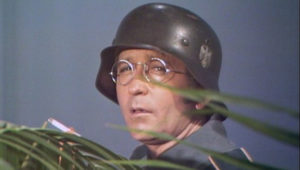 Arte Johnson, the comic best known for the hilarious characters he created for the 1960s NBC smash hit Rowan & Martin’s Laugh-In, died July 3 at 90. Johnson won an Emmy in 1969 for his work on Laugh-In but left the show after four seasons, saying its demanding workload didn’t leave him time to do much else.
Arte Johnson, the comic best known for the hilarious characters he created for the 1960s NBC smash hit Rowan & Martin’s Laugh-In, died July 3 at 90. Johnson won an Emmy in 1969 for his work on Laugh-In but left the show after four seasons, saying its demanding workload didn’t leave him time to do much else.
Rip Torn, an Emmy-winner actor whose career on stage and screen spanned seven decades, died July 9. After acclaimed performances in Cross Creek, Sweet Bird of Youth and other dramas, Torn turned to comedy to capture his Emmy as the bombastic, ethically challenged television producer in The Larry Sanders Show. Created by and starring Garry Shandling, HBO’s spoof of TV talk shows aired from 1992 to 1998 and is widely credited with inspiring such satirical programs as 30 Rock and Curb Your Enthusiasm. He was 88.
Jack Clifford, a co-founder of the Food Network, died July 28. He helped steer the cable channel into a revolutionary enterprise that did for cooking what ESPN did for sports, eventually reaching about 100 million U.S. households and creating a new culture and language around what people eat. He was 85.
Howard Monderer, a longtime senior attorney with NBC in Washington, died Aug. 14. He opened NBC’s Washington legal office in 1958, in part as a response to increasing federal regulation of network TV. He was 92.
Jack Perkins, a former NBC newsman, died Aug. 16 at 85. Perkins spent 25 years at NBC News as a correspondent, commentator and anchorman before taking his talents to cable, where he would host the long-running A&E docuseries Biography from 1994 to 1999.
Jack Whitaker, whose Hall of Fame broadcasting career ranged from the first Super Bowl to Secretariat’s Triple Crown to short essays from major sporting events, died Aug. 18. Whitaker, a Philadelphia native who was wounded on Omaha Beach three days after the D-Day Invasion, began his broadcast career at WCAU-TV in Philadelphia and spent 22 years at CBS Sports. He worked for ABC from 1982 in the news and sports divisions, and was part of the network’s Olympics coverage in 1984 and 1988. He was 95.
 Valerie Harper, who scored guffaws, stole hearts and busted TV taboos as the brash, self-deprecating Rhoda Morgenstern on back-to-back hit sitcoms for CBS in the 1970s, died Aug. 30. She won three consecutive Emmys (1971-73) as supporting actress on The Mary Tyler Moore Show and another for outstanding lead actress for Rhoda, which ran from 1974 to ’78. Beyond awards, she was immortalized — and typecast — for playing one of television’s most beloved characters. She was 80.
Valerie Harper, who scored guffaws, stole hearts and busted TV taboos as the brash, self-deprecating Rhoda Morgenstern on back-to-back hit sitcoms for CBS in the 1970s, died Aug. 30. She won three consecutive Emmys (1971-73) as supporting actress on The Mary Tyler Moore Show and another for outstanding lead actress for Rhoda, which ran from 1974 to ’78. Beyond awards, she was immortalized — and typecast — for playing one of television’s most beloved characters. She was 80.
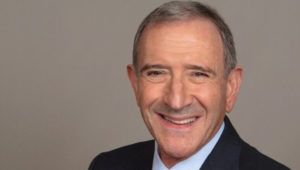 Arthur Sando, an award-winning public relations executive and early communications pioneer at Turner Broadcasting and CNN, died Sept. 3. Sando, a trusted counselor to such luminaries as Ted Turner, Roger King and Joe Torre, headed public relations functions at Turner Broadcasting System, King World/CBS and Ion Media. His career began as a reporter at WFIL-AM, then recognized as one of the nation’s leading Top 40 stations. He became a television reporter at NBC affiliate WSYR Syracuse, N.Y., then served in Washington as press secretary to Rep. James Hanley (D-N.Y.) before joining TBS. He was 71.
Arthur Sando, an award-winning public relations executive and early communications pioneer at Turner Broadcasting and CNN, died Sept. 3. Sando, a trusted counselor to such luminaries as Ted Turner, Roger King and Joe Torre, headed public relations functions at Turner Broadcasting System, King World/CBS and Ion Media. His career began as a reporter at WFIL-AM, then recognized as one of the nation’s leading Top 40 stations. He became a television reporter at NBC affiliate WSYR Syracuse, N.Y., then served in Washington as press secretary to Rep. James Hanley (D-N.Y.) before joining TBS. He was 71.
Sander Vanocur, a television newsman who for decades covered momentous events from political campaigns to assassinations, the Vietnam War to the civil rights movement, died Sept. 16. As national political correspondent at NBC in the 1960s, Vanocur was a questioner at the first presidential debate between John F. Kennedy and Richard Nixon in 1960, then covered Kennedy’s administration as a White House correspondent. In 1977, Vanocur was hired by ABC News, where he served as a correspondent until 1991. He was 91.
 Cokie Roberts, the daughter of politicians and a pioneering journalist who chronicled Washington from Jimmy Carter to Donald Trump for NPR and ABC News, died Sept. 17. In the mid-1970s she was hired to cover Congress for National Public Radio. While staying at NPR, she started working at PBS on NewsHour and in 1988 joined ABC News. She co-anchored the ABC Sunday political show This Week with Sam Donaldson from 1996 to 2002. She may be the only reporter to file stories for Morning Edition, All Things Considered, World News Tonight and Nightline in a single day, said James Goldston, ABC News president. She was 75.
Cokie Roberts, the daughter of politicians and a pioneering journalist who chronicled Washington from Jimmy Carter to Donald Trump for NPR and ABC News, died Sept. 17. In the mid-1970s she was hired to cover Congress for National Public Radio. While staying at NPR, she started working at PBS on NewsHour and in 1988 joined ABC News. She co-anchored the ABC Sunday political show This Week with Sam Donaldson from 1996 to 2002. She may be the only reporter to file stories for Morning Edition, All Things Considered, World News Tonight and Nightline in a single day, said James Goldston, ABC News president. She was 75.
Jan Merlin, an Emmy-winning writer and actor best remembered for early TV series Tom Corbett, Space Cadet and The Rough Riders, died Sept. 20 at the age of 94. Merlin won a writing Emmy in 1975 for daytime NBC soap opera Another World.
 Diahann Carroll, the Oscar-nominated actress and singer who won critical acclaim as the first black woman to star in a non-servant role in a TV series, died Oct. 4. During her long career, Carroll earned a Tony Award and an Academy Award nomination. But she was perhaps best known for her pioneering work on NBC’s Julia. Carroll played Julia Baker, a nurse whose husband had been killed in Vietnam, in the groundbreaking situation comedy that aired from 1968 to 1971. She was 84.
Diahann Carroll, the Oscar-nominated actress and singer who won critical acclaim as the first black woman to star in a non-servant role in a TV series, died Oct. 4. During her long career, Carroll earned a Tony Award and an Academy Award nomination. But she was perhaps best known for her pioneering work on NBC’s Julia. Carroll played Julia Baker, a nurse whose husband had been killed in Vietnam, in the groundbreaking situation comedy that aired from 1968 to 1971. She was 84.
Rip Taylor, the madcap mustached comedian with a fondness for confetti-throwing who became a television game show mainstay in the 1970s, died Oct. 6. In his over five decades in entertainment, Taylor would make more than 2,000 guest star appearances on shows like The Monkees, The Merv Griffin Show, The Tonight Show, Late Night with David Letterman, Hollywood Squares and The Gong Show. He also hosted the beauty pageant spoof The $1.98 Beauty Show. He was 88.
Al Burton, a TV producer whose six-decade career included an eclectic mix of beauty pageants, variety and game shows and groundbreaking comedies including The Jeffersons and Mary Hartman, Mary Hartman, died Oct. 22. He was 91.
Barry Frank, a pioneer sports programmer who negotiated Olympic TV deals and represented broadcasting stars John Madden, Bob Costas and Jim Nantz, died Oct. 29. Frank created many made-for-television shows, including The Superstars, The Skins Game, The Battle of the Network Stars, World’s Strongest Man, Survival of the Fittest and American Gladiator. He was 87.
Rick Ludwin, the legendary NBC executive who wrote jokes for Bob Hope, was a Seinfeld champion from the start and ran specials and latenight programming at NBC for more than 30 years, died Nov. 10. He was 71. During his run at the network, Ludwin worked with every host of the Tonight show: Steve Allen, Johnny Carson, Leno, O’Brien and Jimmy Fallon.
 Frank Biondi Jr., a former CEO of Viacom, Universal Studios and HBO died Nov. 25. In 1978, Biondi was lured away from Children’s Television Workshop to HBO and became a key figure in the company’s still-shaping business model for subscription television. He took over as president and chief executive of HBO in 1983 but four years later he left for a job that would become his signature success — president and CEO of Viacom, the parent company of MTV, Paramount Pictures and Nickelodeon. He was 74.
Frank Biondi Jr., a former CEO of Viacom, Universal Studios and HBO died Nov. 25. In 1978, Biondi was lured away from Children’s Television Workshop to HBO and became a key figure in the company’s still-shaping business model for subscription television. He took over as president and chief executive of HBO in 1983 but four years later he left for a job that would become his signature success — president and CEO of Viacom, the parent company of MTV, Paramount Pictures and Nickelodeon. He was 74.
Herb Granath, a longtime ABC executive, died Nov. 26 at age 91. He helped ABC as it entered into the cable and international fields. During his career he developed as served as chairman of the board of ESPN, A&E, The History Channel and Lifetime Television.
John Lyons, the broadcast engineer who helped shape New York City’s RF skyline, died Nov. 29. He was 71. The new broadcast transmission facilities atop One World Trade Center are just the most visible of his numerous accomplishments.
 Leonard Goldberg, a longtime television producer and executive, died Dec. 4. His TV credits ranged from Starsky and Hutch in the 1970s to the current drama series Blue Bloods. Goldberg was head of programming for ABC when the network’s lineup included Mod Squad, That Girl and Marcus Welby, M.D. Starting in the 1970s, he joined with prolific TV producer Aaron Spelling to make shows including Charlie’s Angels, Hart to Hart and Fantasy Island and TV movies including The Boy in the Plastic Bubble with John Travolta. As a production executive at Screen Gems, now Columbia Pictures Television, Goldberg green-lit production of the Peabody Award-winning TV movie Brian’s Song. He was 85.
Leonard Goldberg, a longtime television producer and executive, died Dec. 4. His TV credits ranged from Starsky and Hutch in the 1970s to the current drama series Blue Bloods. Goldberg was head of programming for ABC when the network’s lineup included Mod Squad, That Girl and Marcus Welby, M.D. Starting in the 1970s, he joined with prolific TV producer Aaron Spelling to make shows including Charlie’s Angels, Hart to Hart and Fantasy Island and TV movies including The Boy in the Plastic Bubble with John Travolta. As a production executive at Screen Gems, now Columbia Pictures Television, Goldberg green-lit production of the Peabody Award-winning TV movie Brian’s Song. He was 85.
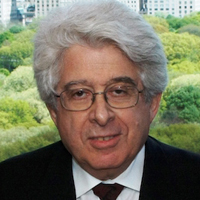 Jay Kriegel, who as a 25-year-old prodigy helped shape the Lindsay administration’s progressive challenge to New York City’s entrenched power brokers, and who later emerged as one himself, in fields ranging from television broadcasting to real estate development, died Dec. 5. At CBS, where he was senior vice president from 1988 to 1993, Kriegel helped persuade Congress to require the cable TV industry to pay broadcasters for the right to retransmit over-the-air programming. He was 79.
Jay Kriegel, who as a 25-year-old prodigy helped shape the Lindsay administration’s progressive challenge to New York City’s entrenched power brokers, and who later emerged as one himself, in fields ranging from television broadcasting to real estate development, died Dec. 5. At CBS, where he was senior vice president from 1988 to 1993, Kriegel helped persuade Congress to require the cable TV industry to pay broadcasters for the right to retransmit over-the-air programming. He was 79.
Joseph Segel, a “quintessential entrepreneur” who founded the home-shopping cable network QVC, died Dec. 21. He was 88. QVC, short for “Quality Value Convenience” launched in 1986 and was available on only 58 cable providers in 20 states. Today Qurate, its parent company, reaches 380 million homes worldwide through 15 television networks.
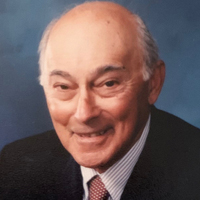 Joseph Sitrick, a broadcaster and later a broker of radio and television stations, died Dec. 24. Over a long career, he worked for NBC News in Washington, Broadcasting Magazine, Voice of America, the State Department, the NAB, and as chief of staff and assistant chairman of the FCC. The rest of his career was with Blackburn & Co. where he represented networks, major station groups and local owners in negotiating the sale and purchase of radio and TV stations. Among those he represented in buying or selling stations were Johnny Carson, Merv Griffin, Danny Kaye, Joe Garagiola and Chet Huntley. During his tenure with Blackburn, he was selected by his peers in the broadcasting profession as one of the first five recipients of the NAB’s Distinguished Service Award for his contributions to the industry. He was 98.
Joseph Sitrick, a broadcaster and later a broker of radio and television stations, died Dec. 24. Over a long career, he worked for NBC News in Washington, Broadcasting Magazine, Voice of America, the State Department, the NAB, and as chief of staff and assistant chairman of the FCC. The rest of his career was with Blackburn & Co. where he represented networks, major station groups and local owners in negotiating the sale and purchase of radio and TV stations. Among those he represented in buying or selling stations were Johnny Carson, Merv Griffin, Danny Kaye, Joe Garagiola and Chet Huntley. During his tenure with Blackburn, he was selected by his peers in the broadcasting profession as one of the first five recipients of the NAB’s Distinguished Service Award for his contributions to the industry. He was 98.
Lee Mendelson, the producer behind more than 50 animated TV specials featuring Charlie Brown and the Peanuts gang, died on Christmas Day. Mendelson also wrote the lyrics to Christmas Time Is Here, a song featured in A Charlie Brown Christmas, the 1965 special that turned Peanuts into a TV staple. Charlie Brown Christmas brought Mendelson the first of his 12 Emmys. The last came in 2015 for It’s Your 50th Christmas, Charlie Brown. Mendelson’s work with animator Lee Melendez also brought him four Peabody Awards, an Oscar nomination and two Grammy noms. He was 86.
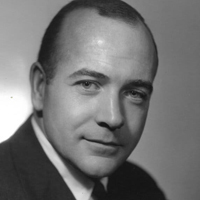 Arthur L. Singer Jr., who became an unheralded father of public television in the late 1960s after commercial networks were famously accused of broadcasting a “vast wasteland” of programs, died on Dec. 25. He played a key behind-the-scenes role in the Carnegie Commission report that led to the Corporation for Public Broadcasting and federal funding. Singer was said to have been instrumental in galvanizing federal officials, philanthropies and academics to seed the public airwaves with quality programming and to finance future development. He was 90.
Arthur L. Singer Jr., who became an unheralded father of public television in the late 1960s after commercial networks were famously accused of broadcasting a “vast wasteland” of programs, died on Dec. 25. He played a key behind-the-scenes role in the Carnegie Commission report that led to the Corporation for Public Broadcasting and federal funding. Singer was said to have been instrumental in galvanizing federal officials, philanthropies and academics to seed the public airwaves with quality programming and to finance future development. He was 90.
Don Imus, a radio disc jockey whose career was made and then undone by his acid tongue during a decades-long rise to radio stardom and an abrupt public plunge after a nationally broadcast racial slur, died Dec. 27. He was 79. Despite repeated apologies, Imus — just 10 years earlier named one of Time Magazine’s 25 most influential Americans — became a pariah for a remark that he acknowledged was “completely inappropriate … thoughtless and stupid.” His radio show, once home to presidential hopefuls, political pundits and platinum-selling musicians, was yanked eight days later by CBS Radio. But the shock jock enjoyed the last financial laugh when he collected a reported multimillion dollar settlement of his five-year contract with the company. He became a TV sensation as well after MSNBC began simulcasting his radio show in September 1996.
Jack Sheldon, a prominent part of the vibrant West Coast jazz movement in the 1950s alongside fellow artists Art Pepper, Stan Kenton and Shorty Rogers, died Dec. 27. He became well-known to TV viewers as the puckish sidekick to syndicated talk show host Merv Griffin during the latter’s TV run from 1962 to 1986. Sheldon was 88.
Fred P. Graham, a legal affairs reporter, television anchor and author who covered the Supreme Court, the Justice Department and the major trials and controversies of a tumultuous juridical era for The New York Times, CBS News and Court TV, died on Dec. 28. After reporting for the New York Times, in 1972 he joined CBS as the network’s law correspondent. Over 15 years, he became a familiar face to Americans, pioneering coverage of Supreme Court rulings for the transitory attention of television viewers. While with CBS, he reported on the Watergate scandal; the resignation of former President Richard M. Nixon; and the legal struggles over abortion rights, racial preferences in college admissions and protections for criminal defendants. He left the network in 1987. In 1991, after a seismic change that allowed television cameras into courtrooms for live coverage of criminal trials, Graham and legal reporter Cynthia McFadden became the first anchors of cable’s new Courtroom Television Network, also known as Court TV. He was 88.
Neil Innes, a writer, musician and Monty Python collaborator, died Dec. 29 at the age of 75. Innes was also part of the Bonzo Dog Doo-Dah Band and The Rutles, a Beatles parody group. He wrote music for the Python albums and TV series, and appeared in both their large- and small-screen outings.
































Comments (0)